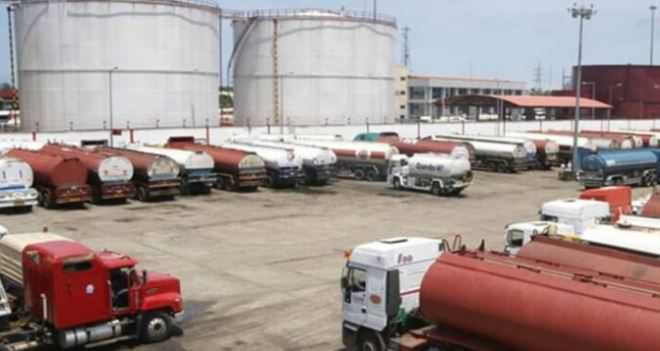– Say it will lead to price increase
– Policy is transformative, says Iledare
By Obas Esiedesa, Abuja
Oil marketers have criticised the Federal Government’s plan to impose a 15 per cent import duty on petrol, arguing that the proposal contradicts the principle of deregulation in the downstream petroleum sector.
According to them, genuine deregulation requires that petrol prices be determined strictly by market forces — not through additional government-imposed duties or taxes that could distort pricing and competition.
Speaking with Vanguard, the Public Relations Officer of the Independent Petroleum Marketers Association of Nigeria (IPMAN), Chief Chinedu Ukadike, described the proposed duty as anti-competitive and warned that it could trigger scarcity and encourage profiteering.
Ukadike noted that the importation of petrol has, until now, helped foster competition with local refining, ensuring fair pricing and better value for consumers.
“This is another way of increasing pump prices,” he said. “If petroleum products are deregulated, demand and supply should determine the price. Import and export activities help regulate prices, stabilise local refineries, and prevent cheating.”
He added that imported petrol continues to supplement local supply because domestic refineries have yet to meet national consumption needs.
“Marketers are importing because the demand exists. If local supply were adequate, importation would not be necessary. The presence of demand shows supply gaps — and if those gaps persist, scarcity will return,” he said.
Ukadike also queried the recent rise in pump prices despite global crude oil price declines and the strengthening of the naira. He warned that the new import duty could push marketers to rely exclusively on Dangote Refinery, potentially creating a monopoly.
“The only source of supply now is Dangote. This will lead to third- and fourth-tier distribution chains, reintroducing profiteering and racketeering — the same issues deregulation was meant to eliminate,” he said.
However, energy economist Professor Wumi Iledare supported the government’s stance, describing the proposed tariff as a transformative step toward fiscal resilience and energy security.
“Public debate around the proposed 15 per cent import duty has been dominated by emotion and populism rather than economic reasoning,” Iledare said. “Tariffs are fiscal tools that, when well-designed, promote domestic capacity and stabilize markets.”
He stressed that the policy is not intended to protect inefficiency or create monopolistic pricing but to boost local refining and reduce Nigeria’s long-standing dependence on imported fuel.
“The tariff aims to transform before transition — strengthening local capacity within a transparent, competitive framework,” he explained. “But success depends on governance integrity. Without institutional discipline, tariffs can become rent-seeking tools.”
Iledare urged key regulatory bodies — including the Nigerian Midstream and Downstream Petroleum Regulatory Authority (NMDPRA), Nigerian Upstream Petroleum Regulatory Commission (NUPRC), and the Competition Commission — to safeguard fair competition and transparency.
“It’s not a ‘Trump-style’ tariff driven by protectionism but an economic instrument balancing efficiency, effectiveness, ethics, and equity,” he said.
Earlier, the Major Energy Marketers Association of Nigeria (MEMAN) estimated that the duty — amounting to about ₦99.72 per litre — could push the retail price of petrol in Lagos to around ₦964.72 per litre, which it noted is still lower than the average pump price in many African countries.
The group said the move comes after lobbying from Dangote Refinery, which has been competing with cheaper imported fuels, particularly from Russia.
While advocates believe the tariff will promote local refining, enhance price stability, and strengthen energy security, analysts warn that it could raise pump prices further and weaken demand in Nigeria’s highly price-sensitive market.
MEMAN noted that Nigeria’s petrol consumption fell from about 420,000 barrels per day in 2022 to 280,000 barrels per day in 2024 following fuel subsidy removal, with recovery still slow despite Dangote Refinery producing up to 20 million litres daily.
The post 15% petrol import duty against spirit of deregulation – Oil marketers appeared first on Vanguard News.

